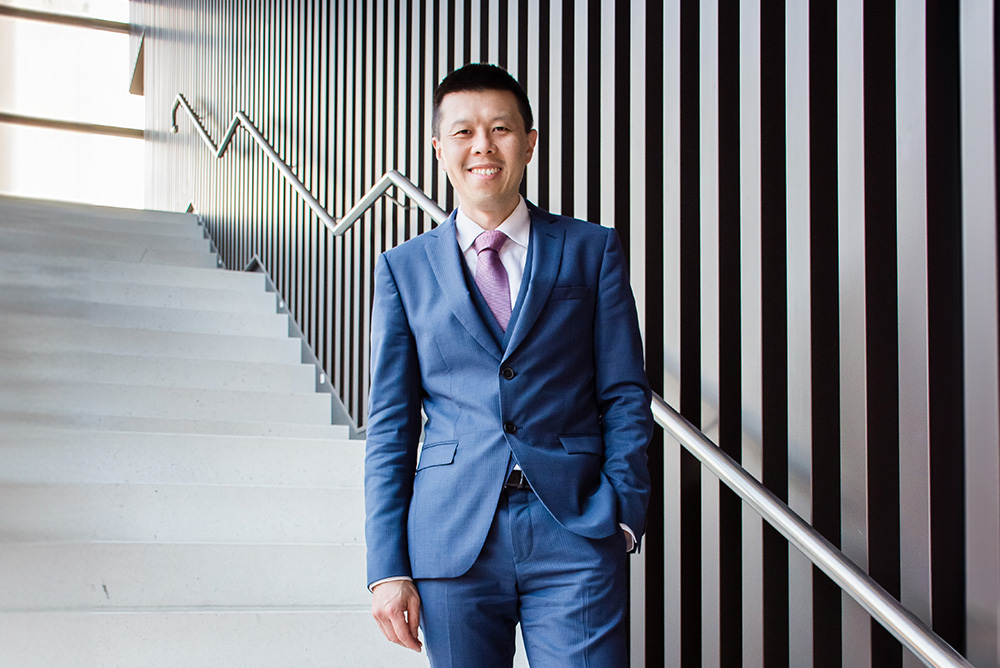

News

Australia-first cell therapy trial for patients with advanced melanoma
Thursday January 9, 2025
- Clinical trial boosted by almost $500,000 in research funding
- Cell therapy product will be manufactured in Perth
- 1500 patients die of metastatic melanoma in Australia each year
Perth medical oncologist Dr Peter Lau from Harry Perkins Institute for Medical Research has been awarded a $445,562 research grant to run an Australia-first clinical trial of cell therapy to treat patients with advanced melanoma.
Dr Lau said it was a “great honour” to receive the Clinician Research Fellowship, part of more than $2.8 million of project funding for 2025 provided by the Raine Medical Research Foundation.
“It’s a big project. It’s something that I’m really proud to help lead and with the whole team to bring this treatment for the first time to Australia.”
Dr Lau said the treatment of melanoma had been transformed over the past decade by immunotherapy with drugs such as pembrolizumab, nivolumab and ipilimumab that prevent cancer cells from suppressing a patient’s immune system.
“For metastatic melanoma, 10 or 12 years ago, median overall survival was about nine to 12 months. Now we’re in a situation where about 40 to 50% of our patients are alive at five years. And a lot of those patients are actually ‘cured’.”
However, about 70 per cent of patients eventually develop some sort of resistance to conventional immunotherapy and about 1500 patients die of metastatic melanoma each year.
“So this is where cell therapy comes in. We have overseas Phase II and Phase III trials that show that cell therapy, or TIL ACT, is really effective at treating patients with melanoma that’s become resistant to conventional immunotherapy.”
TIL ACT stands for Tumour Infiltrating Lymphocyte Adoptive Cell Transfer and involves removing part of the patient’s tumour containing T-cells, which are then rejuvenated and exponentially multiplied – up to 100 billion of them – in the lab before being infused back into the patient where the immune cells can more effectively attack the cancer.
Dr Lau said the clinical trial would aim for “proof of concept” that the manufacturing process and the WA-produced cell therapy product, called Perkileucil, is comparable to what overseas sites can produce.
Perkileucel will be manufactured by Royal Perth Hospital’s Cell and Tissue Therapies WA (CTTWA), one of only four production facilities in Australia accredited by the Therapeutic Goods Administration.
The PERTIL clinical trial, which will recruit up to 30 patients, is scheduled to start in the next few months.
The primary objective of the trial is to assess tumour shrinkage; the secondary objective is overall survival.
Dr Lau said the Clinical Research Fellowship, which runs for three years, provides a huge boost to funding for the trial.
“There’s a desperate need for this treatment. I get a message or a call or an email from one of my colleagues over east practically once every two weeks about when we’re going to open up this trial. There’s a lot of desperate patients out there.”
The multidisciplinary TIL Team that will conduct the trial includes Professor Jonas Nilsson, head of the Harry Perkins Melanoma Discovery Lab who has run cell therapy trials in Sweden; Dr Zlatibor Velickovic, director of the CTTWA facility at Royal Perth Hospital; Edith Cowan University Professor Elin Gray, one of the top melanoma researchers in Australia; University of WA Professor Jason Waithman, a T-cell biologist; SCGH/RPH surgeon Dr Rob Owen; and Pathwest pathologist Dr Nima Ardakani.

